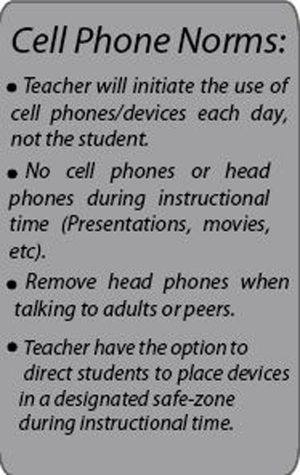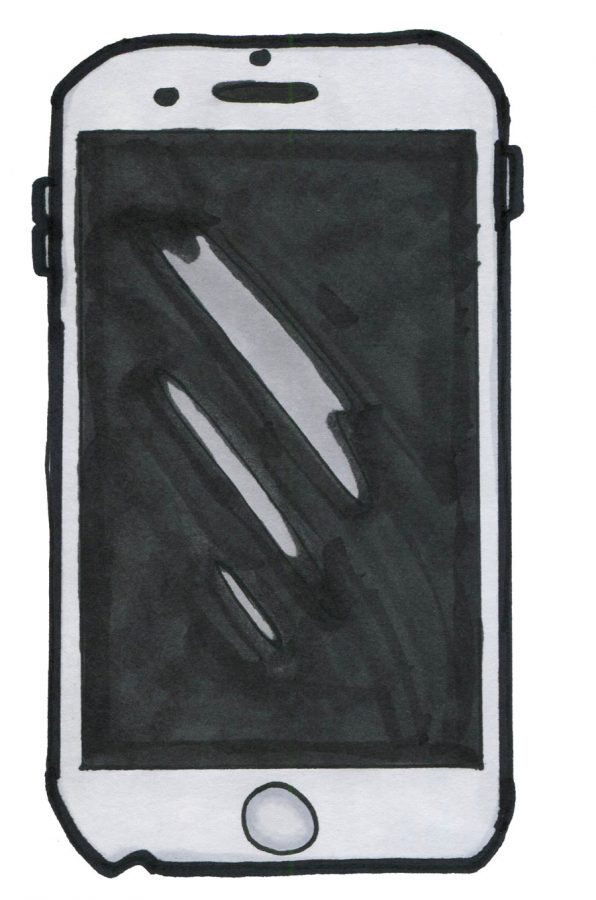Benefits of cell phones in school
Jan 25, 2018
Since smartphones have been around, there has been a debate about their place in schools. Some people believe that they are a negative influence – they can aid cyberbullying, distract students, etc. However, phones can be a great tool in the classroom.
“Sometimes students ask what a word means, but if I just tell it to them, they might only know it for five minutes,” said History teacher Mr. Stafford Newsome. “If you look it up yourself, you have a better opportunity to learn and remember it.”

Because phones have so much utility nowadays, they can be used in a negative way. For example, cyberbullying is a big problem in schools, and phones might help students contribute to it.
“The biggest struggle is when kids take pictures of other kids,” said Newsome. “It could be used for bullying and it is against the law in public schools.”
Another problem that phones can cause in class have to do with teacher-student interaction. When students do not obey the teacher’s cell phone policy, things can get ugly.
“A big problem is when you tell a student to put their phone away, and they refuse and become defiant,” said math teacher Ms. Johangten.
All though there are rules in place, some people do not listen or take them seriously.
“Even if you write them up or ask for the phone they can refuse to give it to you,” said Johangten. “With the warnings of being written up and lunch detentions, I think my students think they are a joke.”
Even though phones in classrooms can have downsides, they are not always a bad thing. In the modern day, being skilled in technology is essential if you plan to be competitive and successful in your adult life. However, there is not always other technology around to use.
“It can be hard to get computers in class, so to be able to take your phone out and use things like Google Slides is nice,” said Newsome.
Even though the school’s technology can be difficult to obtain, we do have them for a reason.
“If a teacher wants technology in the classroom, we have those Chromebooks,” said Johangten. “Get the Chromebook cart in, have the technology, and do whatever you want to do.”
The biggest challenge is figuring out a way to make phones work in a positive way for both students and teachers. With so many different policies and ideas out there, it can be difficult to find a system that makes everyone happy.
“I think it would be beneficial for our school to block certain social media on kids phone if they are on the school wifi,” said Newsome. “But [high schoolers] should be able to police themselves. Some students can be on their phone and get an A in class, some students can be on their phones and get an E.”
Another suggestion includes banning phones all together. Some people feel as if they are more of a distraction than a benefit.
“I would say no cellphones, period, at the school,” said Johangten.
According to edtechmagazine.com, 74 percent of educators support the use of technology in schools. 69 percent said technology has helped do more than ever before for their students.
Phones are an essential part of the modern person’s life, whether one likes it or not. There are pros and cons to everything, but one thing is clear: phones are not going anywhere, and we have to embrace the change. Smartphones and computers are some of the most revolutionary inventions of all time – perhaps they should have a place in school.




